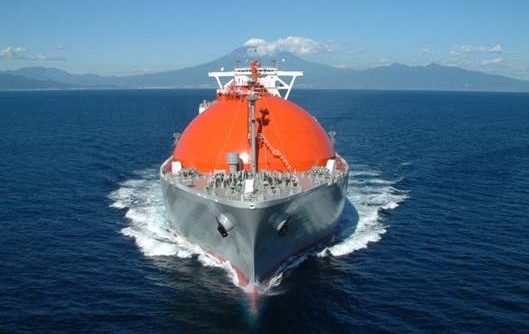K Line pursues CO2 capture project

Japanese shipping major Kawasaki Kisen Kaisha (K Line) will trial the world’s first marine-specific carbon capture equipment onboard one of its ships.
K Line announced today plans to deploy a small-scale demonstration plant for CO2 capture onboard a vessel and conduct research and development on compact facility design, in collaboration with project partners Mitsubishi Shipbuilding and Nippon Kaiji Kyokai (ClassNK).
The project is supported by the Maritime Bureau of the Ministry of Land, Infrastructure, Transport and Tourism (MLIT).
The marine-use CO2 capture demonstration plant will be based on an onshore plant and designed to capture a portion of a vessel’s gas emissions. This project will not only verify the efficacy of capturing and storing CO2 from a vessel’s gas emissions, but also the operability and safety of CO2 capture facilities at sea. These demonstration tests are aimed at promoting the development of more compact equipment required by marine environments along with the development of system requirements necessary for stable continuous operation at sea.
The two-year project starts now with the launch of a hazard identification evaluation of the demonstration plant and deployment on vessels, with verification from ClassNK. Mitsubishi Shipbuilding will begin development and construction of a small-scale CO2 capture demonstration plant and evaluation of system safety. In the middle of 2021, Mitsubishi Shipbuilding will begin test operation of the demonstration plant at its factory, followed by deployment of the plant on K Line’s Corona Utility, a thermal coal carrier operated for Tohoku Electric Power. By the end of fiscal 2021, the project partners will start operating the demonstration plant onboard the vessel and measuring the system’s performance under marine conditions, with the aim of jointly developing a new marine system for vessels.
“As the world’s first marine demonstration test, the project will provide invaluable insights into facilities design and technologies for capturing CO2 emissions and achieving zero emissions onboard vessels,” K Line stated in a release today.
The captured CO2 is expected to be recycled as a new CO2 source for enhanced oil recovery processes or as raw material in synthetic fuel through methanation.
